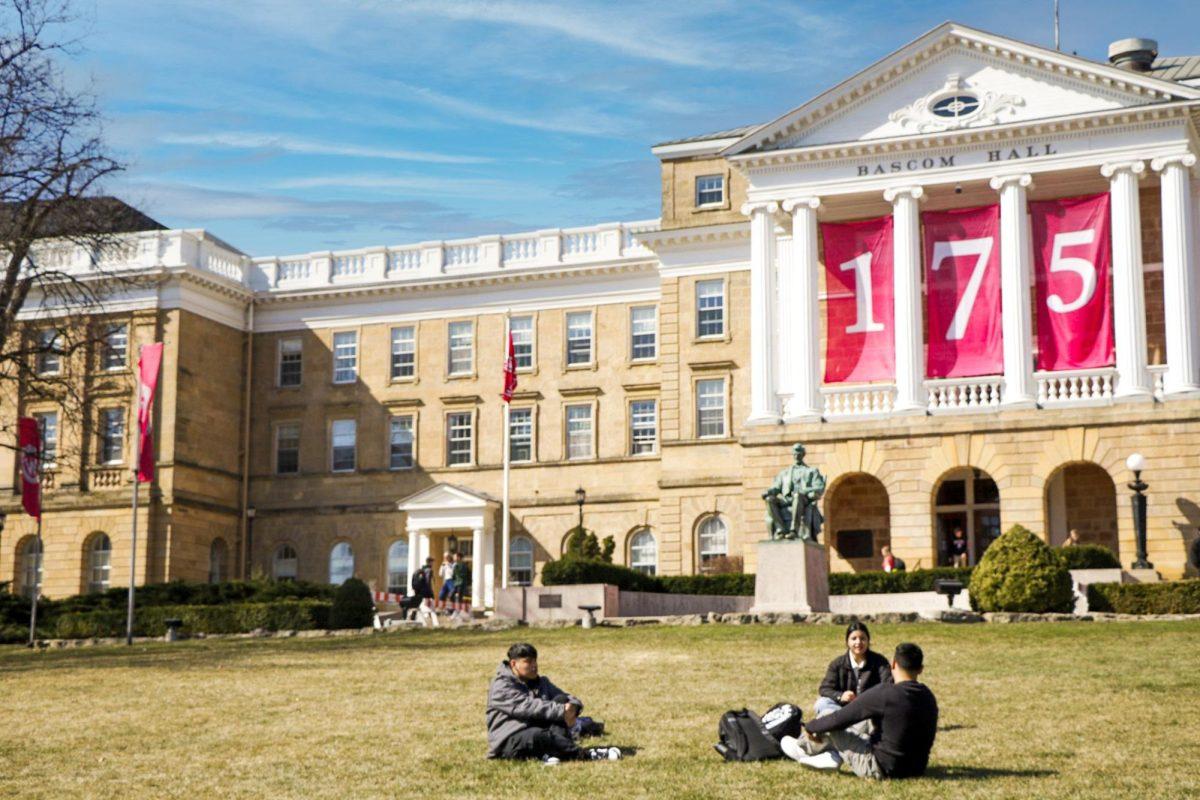[media-credit name=’ALEC LUHN/Herald photo’ align=’alignnone’ width=’648′] [/media-credit]When Josh Gaines became the first Iraq veteran to publicly reject medals earned in the conflict, the act was a political statement as well as a personal catharsis.
[/media-credit]When Josh Gaines became the first Iraq veteran to publicly reject medals earned in the conflict, the act was a political statement as well as a personal catharsis.
The former army reservist mailed two medals and a letter explaining his reasoning to then Secretary of State Donald Rumsfeld during a protest at the Capitol Wednesday. Gaines’ action was unprecedented for a veteran of the Iraq War, according to spokesmen from the Madison Veterans Center and Iraq Veterans Against the War, as well as a fellow serviceman.
But while Gaines hoped to encourage dissent over a war he believes is wrong, the move is also part of a “healing process” in his life after Iraq, he said.
After he returned from active duty overseas in March 2005, Gaines experienced difficulty with post-traumatic stress disorder.
“I was real heavy into alcohol, really numbed out in life,” Gaines said.
His tolerance lowered by 13 months of sobriety during his mobilization to Iraq, the disgruntled veteran began drinking often.
“When you get home, it’s like going to Disneyland for the first time, every day,” he said. “I lost track of what was important for me in life.”
His alcohol abuse, in combination with an attitude of invincibility held over from his time in Iraq, culminated in a drunken driving offense in May 2005.
Gaines was discharged from the army in 2006 for failing a urine test, he said. He had been smoking marijuana to help him eat and sleep: He lost 20 pounds in less than three months and was suffering from constant nightmares, Gaines said.
A spokesperson from the Army Human Resources Command declined to comment on the reasons for Gaines’ discharge.
Gaines eventually ended his downward spiral, he said, with the help of a state-sponsored counselor appointed after his drunken driving conviction, and turned his efforts toward raising awareness about the Iraq War.
Former comrades-in-arms weren’t surprised when Gaines rejected his medals.
Sholom Keller, a veteran of the conflicts in Iraq and Afghanistan and member of Iraq Veterans Against the War, went to basic training with Gaines and described him as a typical “good soldier.”
But serving in Iraq is enough to recast any soldier’s outlook, according to Keller.
“After having been through that experience, I’m not surprised at all that a soldier would turn in his medals,” he said.
Ryan Hill, who served in the same unit as Gaines in what they used to jokingly refer to as “the bad place,” said the move is characteristic of a soldier who was always “pretty quick to speak his mind.”
Hill shares Gaines’ ire over what the majority of their unit saw as the pointlessness of its service in Iraq.
“We didn’t have a defined mission,” Hill said. “We were taking up space and hoping rockets and mortars didn’t hit us.”
In his letter to Rumsfeld, Gaines faulted leaders for sending his unit into combat without proper armor and overwhelming it with a poorly regulated security assignment.
Gaines said he "felt like a phoney" upon receiving his two medals, which came as a surprise when they were awarded to him in a crowded tent in Kuwait after his unit left Iraq.
"Guys were actually fighting over which medals they wanted," Gaines said in describing the process that began with soldiers requesting awards from commanders.
He didn’t apply for the two decorations, which Hill said every soldier in the unit likely received.
Although Gaines has not drawn the condemnation of the military for returning his medals (a spokeswoman from the Wisconsin Dept. of Military Affairs said he has the right to express his opinions however he chooses), he should be ready for the scrutiny now directed at him as a public figure, according to Madison Vietnam veteran Tom Deits.
“It’s a John Kerry situation,” Deits said. “What is he really saying? Did he do it to protest the war or to gain a public foothold? … Is Josh coming from the heart?”
And although Keller won’t be rejecting similar medals anytime soon, that’s only because he misplaced them and hasn’t gone to a supply store to buy new ones.
“My service in Iraq … what I took on, on behalf of my country, only to find out the Iraq War was illegal, immoral and unjustifiable, is not worth a trinket to parade around on my chest,” he said.














